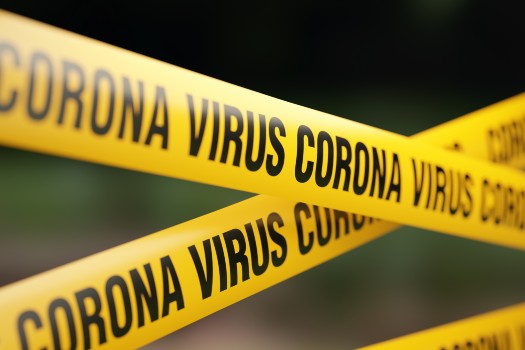Extremely vulnerable people told they can stop shielding from 1 August

People who have been deemed extremely vulnerable to serious illness or death from Covid-19 are being told they can quit shielding in just six weeks’ time.
The Department of Health said that from 1 August, the 2.2 million people on the shielding list in England will no longer be advised to shield, because virus infection rates continue to fall.
Meanwhile, shielding guidance will be significantly relaxed already from next week (6 July), allowing for outdoor social distanced contact with up to six people; and support bubbles with another household for shielding people who live alone or are single parents.
From August, the DHSC said, shielding people can go back to work if they cannot work from home and their workplace is ‘Covid secure’ in line with Government guidance. Adhering to ‘strict social distancing measures’, shielding people can also visit shops and places of worship, while continuing to remain home ‘as much as possible’.
People on the list will also retain access to priority supermarket delivery slots and NHS volunteer and local council support.
The Government’s announcement said it consulted on the changes with GPs, with the BMA saying they had been told an announcement was due this week.
The Government said the guidance has been eased as it is now safe to do so, as on average less than one person per 1,700 people have Covid-19 compared to one in 500 four weeks ago.
The shielding patient list will be maintained in case it needs to be reactivated at a later date, the DHSC added.
Deputy chief medical officer for England Dr Jenny Harries said: ‘Shielding was introduced to safeguard those who, at the start of the epidemic in the UK, were thought to be most clinically vulnerable in our communities. We know how difficult this period has been and the impact shielding has had on many people’s mental health.
‘The prevalence of the virus in the community is now lower and chances of getting infected are reduced, so we believe it is the right time to relax some of the advice so people can start to regain a degree of normality once more in their daily lives.
‘People should continue to follow social distancing guidance when outside their homes, as well as frequently washing their hands, to minimise the risk of becoming infected. We will continue to monitor the evidence closely and adjust the advice accordingly if there are any changes in the rates of infection that could impact on this group.’
Health secretary Matt Hancock said: ‘I want to thank all those who have been shielding for so many weeks for their commitment to the shielding programme. I know this has been incredibly tough. Shielding has involved not leaving your house for months, not seeing people you care about, not being able to wander to the park for some fresh air, or even pop to the shops for something you need. This sacrifice has been for a purpose, and I want to thank every single one of you.
‘We knew it was a difficult ask, but these measures have been vital in saving lives. Now, with infection rates continuing to fall in our communities, our medical experts have advised that we can now ease some of these measures, while keeping people safe.’
Dr Richard Vautrey, BMA GP committee chair, said: ‘People who are shielding have spent the last three months at home with little to no social interaction and doctors will understand only too well how difficult this has been for them.
‘We know the detrimental impact that loneliness and isolation can have on people’s physical and mental health, and therefore this decision must be based on the balancing of risk, and reliant on the infection rate continuing to fall over the coming weeks.
‘Crucially, it must be reliant on the most up-to-date data and the Government must not hesitate in reversing its decision if infection rates begin to rise again.
‘GP practices have been supporting their shielded patients and will continue to do so as we move to this next stage. In most cases, this will still be done remotely via telephone or video, but when a face-to-face appointment is required, patients should be confident that this will be done in a clinically safe setting, such as their local practice.’
RCGP chair Professor Martin Marshall said: ‘We appreciate the notice the profession has been given about these forthcoming changes. This will allow us to make necessary preparations in our practices to support our patients accordingly – and the College will be updating our resources for GPs and their teams imminently.
‘But as GPs, who take a holistic view to delivering care, we still have many unanswered questions as changes to shielding guidance will not just affect our patients’ health but other parts of their lives that are relevant to their health.’
In the last 24-hour period, there were 958 positive Covid-19 test results recorded for the UK and 15 deaths.
GP leaders said last week that it was ‘vital’ there was not another ‘out of the blue’ announcement on the programme such as that made on 1 June, when shielding people were told they could leave their homes for daily exercise.












